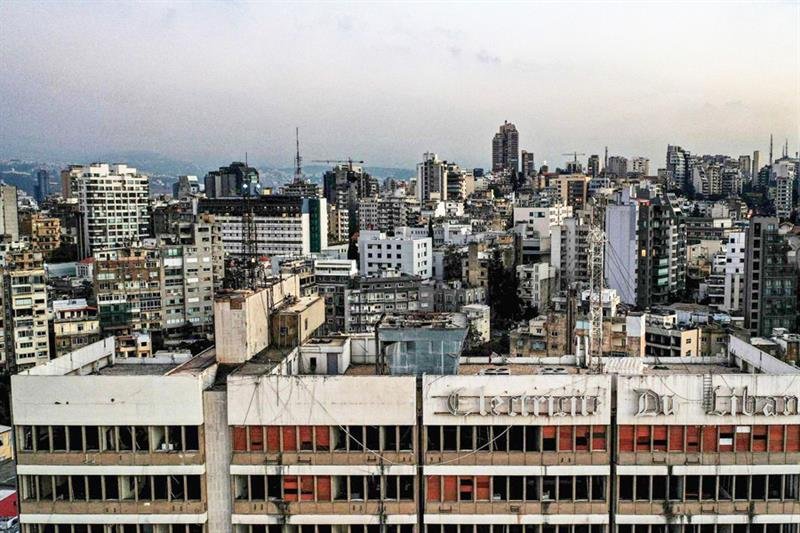Two weeks ago Beirut briefly lost all access to the Internet. More than 26,000 subscribers offline in the capital as in other parts of Lebanon went off the grid as the country’s growing power shortage took away the Internet as well.
State Internet provider Ogero was soon back to business after the government provided the company with enough power for six months, its chairman Imad Kreidieh said, provided that the US dollar rate does not surge.
The incident left an already traumatised Lebanon anxious about the future of the Internet. What will happen after six months? Many are asking. And is this a prelude to longer Internet outages in the future?
Lebanon’s financial crisis has affected the country’s information and technology sector in different ways. Many companies have relocated to cities like Dubai with stable Internet and electricity services, allowing them to deliver their products to their clients on time.
Salah Awad, chief technology officer (CTO) of the software company Eventeam GS-Italiano, said businesses that rely entirely on the Internet have little choice but to obtain the service from multiple private Internet Service Providers (ISPs) able to sell it. This results in them paying twice as much (or more) for their Internet bills in order to remain connected at all times.
The impact of intermittent Internet is high, especially on SMEs and business incubators, such as Berytech, which have been a big help for startups in Lebanon since 2006. Most of these SMEs are owned by fresh graduates or young people unable to find work in the mainstream market.
This is even becoming a mission impossible for experienced business people to handle due to continuing electricity cuts and bad Internet services. Economic journalist Emad Chidiac forecast a huge problem in the economic cycle if the government does not find a solution, as the whole banking sector, companies and citizens need this service to be connected to the world. One solution is to raise the price of the service, but this would add to the already high inflation crippling Lebanon.
A representative of 160 Internet providers, Robert Bitar, told Al-Ahram Weekly that due to the price of fuel, since it is a necessity for their work, they have increased their charges.
However, this is not enough for them since they are paying for the newest technology in dollars and euros and staying up to date. Bitar is recommending big changes so clients will be paying up to 300 Lebanese pounds instead of 25 or 50.
Maroun Chammas, CEO of IDM, one of the biggest ISPs in Lebanon, told the Weekly that, due to dollar rates, his costs are rising from one week to the next, but the income from clients remains unchanged. Chammas affirmed that during the past two years his company’s losses were too great to sustain its place on the market, and it can’t continue in this way. For him, if the government can’t support this deficit then the citizen will have to, but he affirms that prices must remain affordable.
Lebanon is facing infrastructural challenges which stand in the way of transitioning to a digital economy. Rabih Baalbaki, president of the Lebanese Association for IT Professionals, affirms that the consequences of some regions in Lebanon being cut off the Internet is that citizens do not have equal access to resources so that there is no integrity and justice in digital services.
When these partial outages occur the impact is equivalent to a total outage as citizens are unable to communicate, whether from the north, the south or Beirut. Digital rights, now considered a human right, are thus being attacked in Lebanon.
Rabih advises the government to use alternative energy sources instead of diesel, as all sectors are using the Internet.
Patrick Mardini, an economic expert, explained that before Lebanon’s financial crisis, the country was deficient in ICT companies while Ogero, being government owned, maintains an absolute monopoly in connecting Lebanon to the Internet and selling it on to the private sector.
After the economic crisis, with changes in the dollar rates on the black market, the government didn’t adjust the official dollar rate of the service in a way that covers the cost. And that is why so many people have lost the service, Mardini told the Weekly.
The digitalisation imposed on the whole world by Covid-19 led Lebanon to follow the new world order, but as the Lebanese government fears a revolution if any amendment in the Internet service bill occurs, they would rather pay the price out of Central Bank reserves, Mardini said.
If this continues to be the case, Lebanon will no longer have Internet, all sectors will be impacted negatively, even agriculture, as Central Bank money is limited. As a result Lebanon will see an increase in the migration of companies to countries where the Internet is stable.
One of the solutions, according to Mardini, is to liberate the sector from Ogero and create competition between different players on the market.

